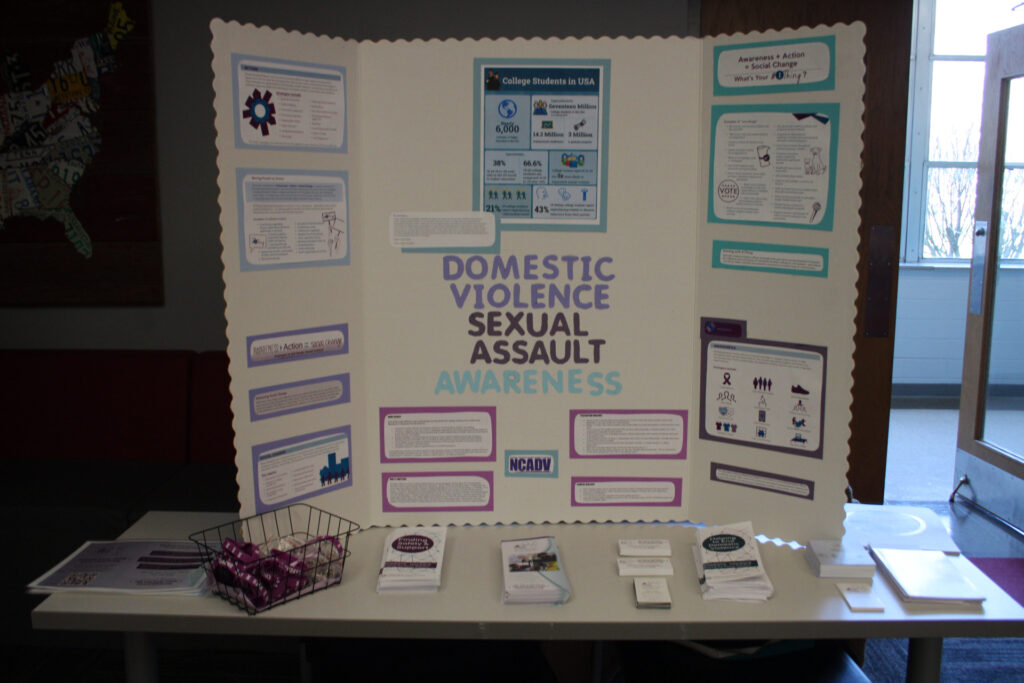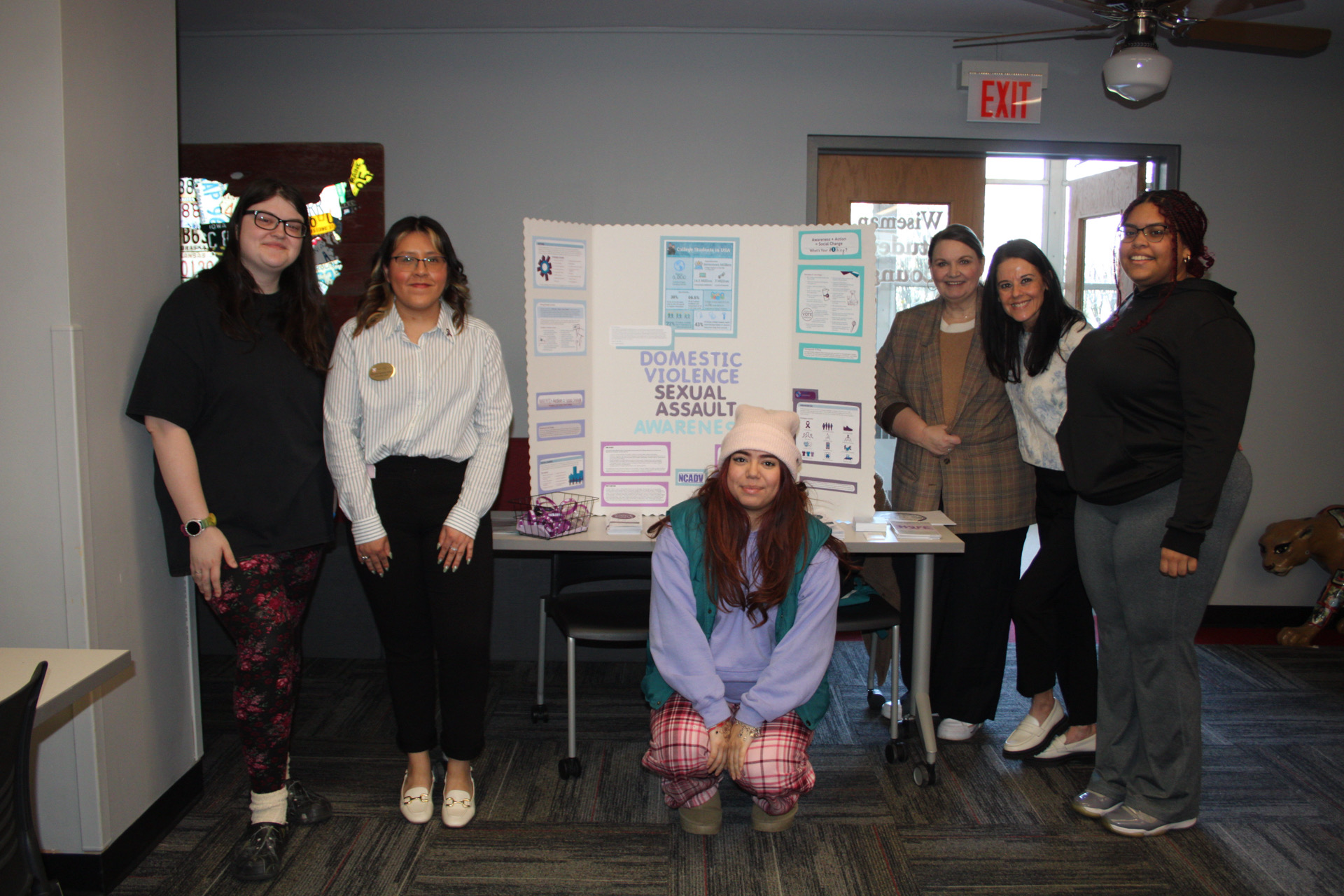Campus Counseling Center, student attendees, and Tracy Curtis (third from the right)
The Xavierite
On Tuesday, April 8, the Counseling Center hosted its annual Domestic Violence and Sexual Assault Event to raise awareness and talk about safety precautions for Sexual Assault Awareness Month.
Present at the event was Tracy Curtis, Community Educator and Outreach Coordinator at the Crisis Center for South Suburbia, who spoke to inform and aim to prevent future domestic violence and sexual assault instances from occurring.
“This right here is the first big step, becoming educated on it. We will go through signs and how to safely advocate for victims. It’s very important to be able to do that but never to confront the abuser or perpetrator. It’s definitely not safe, they can be extremely volatile. So, it’s always better if a victim comes and discloses to somebody to just be supported and given resources,” Curtis expressed.
Different types of abuse include physical, verbal, emotional, sexual, mental (psychological), and financial. However, in Illinois and most states, only physical and sexual abuse are criminalized, requiring physical evidence in order for continuation on a case.
“In the United States, we want physical evidence, usually isolated instances of physical assault, to consider there to be domestic abuse,” according to Curtis’ powerpoint presentation.
Curtis explained, “I think it’s important to have these events especially for you all on campus but just for community awareness because domestic violence and sexual assault both have community impacts. It’s best to educate and raise awareness, especially here on a college campus.”

Curtis delved into the different warning signs to look out for in an abusive relationship, and explained that in many cases of abuse, the victim ends up murdered by their abuser. She continued, “38% of all murders of women are committed by an intimate partner or former intimate partner.”
Domestic violence can be influenced by the observation of others, experience, reinforcement, culture, family, communities, and peer groups. It can also happen to anyone of any race, gender, and religion, Curtis shared.
Domestic homicides rates increased by 110% since 2023.
One of the most common instances of abuse before death is strangulation, which increases the victims rate of fatality, meaning that the next time a victim is strangled it could potentially lead to death, according to Curtis.
Curtis further explained that the presence of a gun in a domestic violence instance can increase the risk of a homicide by 1000%, doubling the rate it was when she first started her position at the Crisis Center for South Suburbia (500%).
Before an abuse instance occurs, a cycle of violence almost always takes place. This cycle has to do with “power and control” that the abuser wants from the victim. Abusers may not participate in each stage of the cycle, but the most common are considered: the pleasant phase, the pursuit phase, the remorse phase, the abuse phase, and the tension phase.
The most commonly used manipulation tactic is considered coercive control. This is when an abuser uses their ‘power’ over their victim “to dominate their partner and limit their freedom,” shared Curtis. This can be used through isolation, gaslighting, and monitoring, and is typically used in most domestic abuse cases.
“While coercive control can be found in any type of relationship, it’s most common in heterosexual relationships in which the man uses coercive control against the women,” she continued.
One in three women in an domestic abuse instance report being a victim of coercive control.
The importance of recognizing these signs was discussed as well as plans to ‘escape’ and ‘cope.’ These included but are not limited to understanding warning signs, making the environment safe, preparing for a quick exit, internal coping strategies, asking for support from family/friends, and finding professionals and agencies that can offer assistance.
For more information pertaining to domestic violence and sexual assault or for counseling, contact the Crisis Center for South Suburbia 24 hour hotline at 708-429-7237 or visit www.crisisctr.org.
For sexual assault instances contact the Sexual Assault Hotline at 708-482-9600.
For domestic violence instances contact the National Domestic Violence Hotline at 1-800-799-7233 or visit their secure online chat at thehotline.org.
